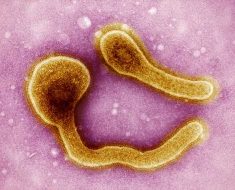Psychedelic drugs may be the next generation of treatment for anxiety and depression.
New research finds psychedelic drugs may be the next best treatment for a variety of mental health conditions, particularly depression and anxiety. While it is still not completely understood, scientists say the mind-altering properties of LSD and magic mushrooms (psilocybin) may actually repair and improve brain function.
Per a Gizmodo report, University of California researchers exposed several psychedelic drugs, including LSD, magic mushrooms, ketamine, and, ecstasy (MDMA), to the neuron of humans, rats, and other various animals. The neurons were from a specific area of the brain, the prefrontal cortex, believed to be the place where some mental disorders originate.
The drugs, the scientists discovered, enhanced the neuron’s ability to communicate with other neurons. New connections, known as synapses, began to grow, fundamentally boosting a brain cell’s ability to transmit information to other cells.
The end result is an improvement of the brain’s plasticity and ability to repair damage caused by stress and trauma. The effect potentially reverses the brain activity of people suffering from depression, post-traumatic stress disorder, anxiety, and even addiction.
“People have long assumed that psychedelics are capable of altering neuronal structure, but this is the first study that clearly and unambiguously supports that hypothesis,” noted lead author David Olson, an assistant professor in the Departments of Chemistry, Biochemistry, and Molecular Medicine.
Olsen said LSD was especially effective at changing brain cells. The research supports the idea embraced by some that take very small doses of the psychedelic drug to increase happiness and creativity. Psilocybin and ketamine had nearly identical effects in the lab rats.
Prior to this study, ketamine was the “only player in town.” Now, scientists have more options for the development of new anxiety and depression drugs. The research “opens up some new doors” to creating safer and better treatments as well as versions that do not cause psychoactive reactions.
“Ketamine is no longer our only option,” Olson said. “Our work demonstrates that there are a number of distinct chemical scaffolds capable of promoting plasticity like ketamine, providing additional opportunities for medicinal chemists to develop safer and more effective alternatives.”
Mental conditions like depression and anxiety continue to plague millions of people worldwide. This new research will hopefully one day bring new treatments with the potency to end the daily struggle of people living with crippling mental diseases.
Source: Read Full Article





